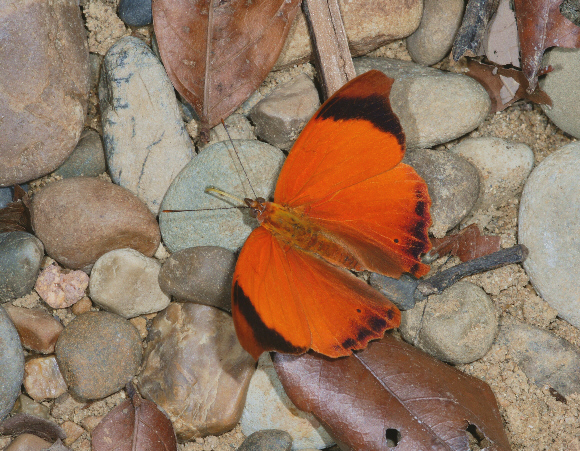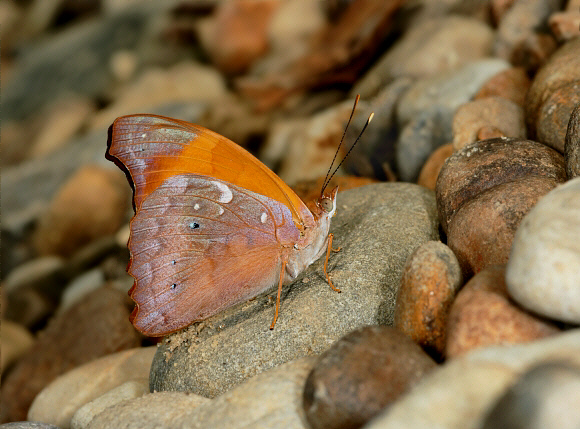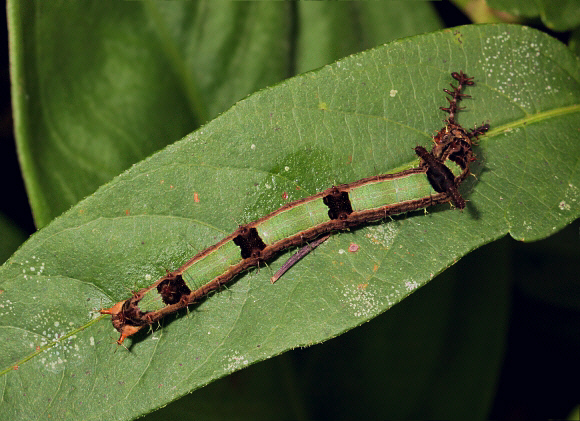
Introduction
Temenis is closely allied to Epiphile and Nica, in which the adults are structurally extremely similar. The 3 genera are biologically distinguished by differences in larval morphology.
There are 3 Temenis species – pulchra, laothoe and huebneri.
Habitats
This species is found mainly in primary rainforest and transitional rainforest / cloudforest habitats at altitudes between sea level and about 1600m. It also occurs in much lower numbers in humid deciduous habitats such as at Guanacaste in Costa Rica.
Lifecycle
The larval foodplants are Serjania, Paullinia, Cardiospermum, Urvillea and other shrubs and vines in the family Sapindaceae.
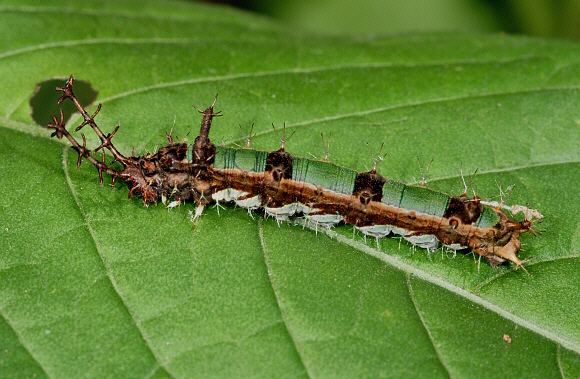
Adult
Temenis laothoe occurs in 2 forms. The most common and widespread form is bright orange in colour, except for the apex of the forewing, which is dark brown. This form is distributed from Mexico to Bolivia. A small percentage of each brood are of the extraordinarily beautiful violetta form, illustrated below. This form of the species only appears to be known from Colombia to southern Peru. Both forms often occur side by side at the same sites and at the same time of year.
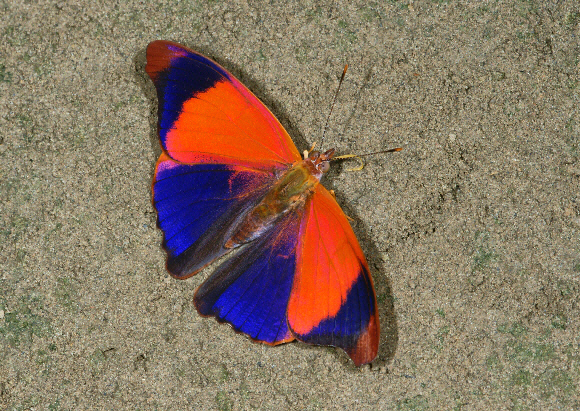
The butterflies often settle to bask on foliage, typically at height between 2-3 metres above ground level. They also commonly bask on logs, fallen branches, wooden fence posts and tree stumps. When basking the wings are always held in a three-quarters open position.
Males often hop about from spot to spot on the ground on river beaches, peccary wallows, semi-dry stream beds and wet roadsides. They are nervous in disposition and often fan their wings slowly when they stop momentarily to imbibe moisture. If undisturbed they settle down after a few minutes to rest with their wings held erect.
